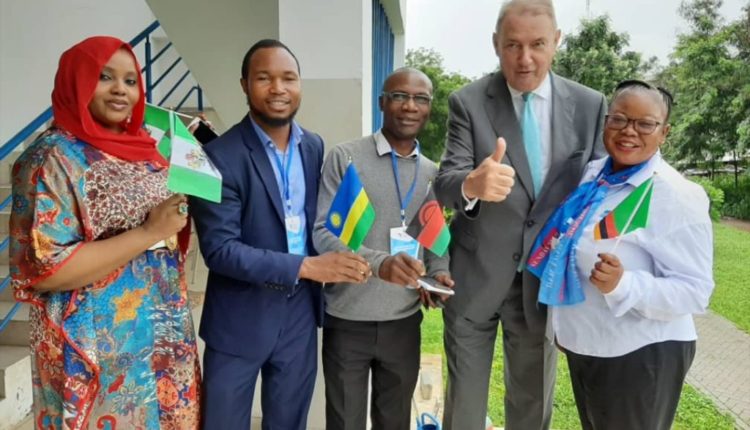Anglophone African Journalists trained on International criminal law and justice reporting
Around 40 Journalists from 12 African Countries concluded a two-day training programme on international criminal law and justice to foster knowledge capabilities in reporting on these issues.
The training that was organized by the African Centre of International Criminal Justice (ACICJ) in partnership with the Kingdom of the Netherlands Embassy in Ghana took place at the Ghanaian Institute of Management and Public Administration (GIMPA) in Accra at Moot Court law faculty conference room from November 14th to 16th, 2019 with the aim to strengthen African Anglophone journalists to report on cross-cutting criminal issues.
After detailed information about how the International Criminal Court (ICC) operates, Journalists were advised to create a space in their media platforms whereby the community will get information about international criminal justice.
Speaking during the opening ceremony of the training, Professor Philip Ebow Bondzi-Simpson, Rector of GIMPA warned journalists to not sensationalize while making their news stories about International criminal law and justice, rather, he advised them on making further editing after covering a balanced article so that the community remains intact with a trust of what media report.
“ICC remembers what happened in African countries whose people suffered wars and we know journalists have a significant role on what we report. Do we sensationalize? Do we edit? Journalism is critical to how the society will learn about their broadcasts and reports,” Prof. Philip said.
Prof. Philip also reminded journalists to always respect the principles of journalism including presumption of innocence, independence and protection of the victim.
Professor Justice Dennis Adjei, Dean of GIMPA, Faculty of Law and Justice of the Court of Appeal of Ghana recalled journalists to report accurately because inaccurate reports can mislead society.
The training embarked on how to fight against impunity at all costs and how the victims should be attended to.
Ambassador of The Royal Netherlands Embassy to Ghana Ron Strikker said that all the sides of the case including the victims must be looked on when compiling a successful news article.
“20 years ago we have been fighting against impunity and until now we make sure that the culprits are punished. You should importantly show the role of the victims so that they get justice. In Rwanda, genocide perpetrators get justice and the victims speak out, they can speak what happened to them, they can describe and give testimony.” Said Hon. Ambassador Ron Strikker.
Journalists were explained about crimes against humanity, war crimes that are under the coverage of ICC.
“Mr. Jean Bosco Ntaganda was given a sentence of 30 years of imprisonment due to the crimes against humanity. This is an important example to others who are there doing the same thing. The ICC has encountered challenges in investigating the suspects in Kenya and this is the best opportunity to engage with the court to get information. We need journalists to be active on these issues, we need media support and platforms to get to the victims in the community. You will manage to interact with the court to get premier information.” said DAHIROU SANT-ANNA, International Cooperation Adviser at ICC.
Dahirou gave pieces of advice to journalists to report on ICC proceedings by first understanding what ICC is about. “ I am not asking you to become a lawyer, you are a journalist and the way you approach things is different from the lawyers, you must understand what are the jurisdiction at ICC, what are the cases ICC is prosecuting to better inform the public and avoid erroneous information.” He said.
Participants to the training came from Ghana, Nigeria, Kenya, Sierra Leone, Liberia, Namibia, Malawi, Zambia, Zimbabwe, Swaziland, Uganda and Rwanda.



